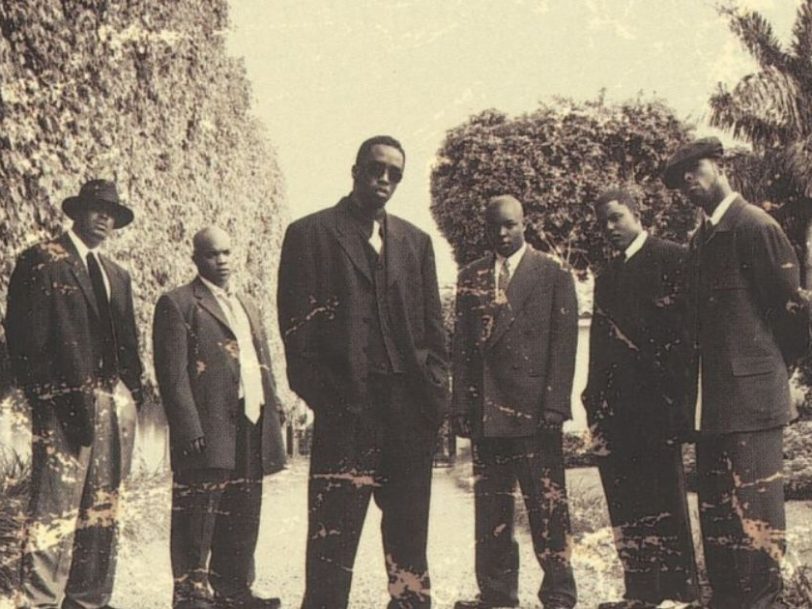No Way Out, the chart-busting, Grammy-winning debut double-album by Sean Combs – aka Puff Daddy – was released by Combs’ own Bad Boy label on 22 July 1997, a few scant months after the violent death of his key signing and friend, The Notorious B.I.G., and the release of Biggie’s second album, the diamond-selling Life After Death. Combs had started out at Andre Harrell’s label, Uptown Records, where he’d heard Biggie’s raw demo. Founding Bad Boy in 1993, and taking Biggie with him, “Puffy”, as he then went by, had confidently assumed the roles of svengali, producer and hypeman, and with No Way Out he staked his claim to being a frontman, too, ably assisted by a host of 90s rap’s finest, plus his in-house production team, The Hitmen. While a year’s worth of recording sessions had resulted in much of the album’s material, the impact of Biggie’s death could be felt in later additions to the tracklist, plus in a letter from Puffy to Biggie included as part of the album’s artwork. Across the record as a whole, Puffy’s lyrical concerns continued Biggie’s mixture of (justified) paranoia, gunplay and aspiration.
Listen to ‘No Way Out’ here.
Like movies in miniature
No Way Out opens with a choral intro overlaid with a helicopter sample that makes the piece reminiscent of the classical sequence from Oliver Stone’s Vietnam War movie Platoon. It then bursts into the tense horn fanfares of the single Victory, featuring New York City legend Busta Rhymes, who strides forward alongside Biggie (“The heaters in the two-seaters/With two midas/Señoritas/Kiss rings when you meet us”). Its accompanying cinematic video, from promo king Marcus Nispel, featured Dennis Hopper, Danny DeVito, Tamara Beckwith and Tara Palmer-Tomkinson, and the single release also featured an even tenser remix from the 90s’ premier industrial act, Nine Inch Nails; if you never put Combs and industrial music together, you might be in for a pleasant surprise, and Busta certainly missed a second career as a rock singer.
The album’s playful fourth single, Been Around The World – also featuring Biggie, plus the more fun-focused Combs protégé Mase – slows and throws David Bowie’s 80s dance-pop hit Let’s Dance into a dreamy daze, and also references Lisa Stansfield’s pop smash All Around The World on the chorus. Another movie in miniature, the lengthy Paul Hunter video utilised actress and soon-to-be pop star Jennifer Lopez. There were Armand Van Helden remixes on the single, too, in the proto-speed-garage style the DJ was then pioneering.




